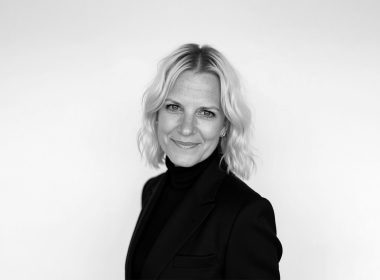Building a business with genuine market impact requires more than just a good idea. It takes the ability to spot real problems, design practical solutions, and stay flexible as the market evolves. Nadine Green has spent over 15 years doing just that. Through her college advisory company, The College Advisor Network for U, and a C-suite consulting firm, The C-Suite Group, she has built two successful ventures by focusing on market gaps that others often ignore. Her approach shows how solving the right problems can deliver long-term value while making a difference in the communities you serve.
Identifying Market Gaps That Matter
Green’s business journey always starts with paying attention to where people are underserved. Her college advisory company began when she noticed a consistent imbalance in educational guidance. “There was a gap between what kids got in private schools versus what was available in public schools,” she explains. Private schools had smaller counselor-to-student ratios and more structured support, while public school families were often left overwhelmed and under-informed.
That observation sparked a purpose-driven business. “I felt I was solving a market problem while helping families and mentoring students. And I was getting paid to do something meaningful,” Green says. Her second company, a consulting firm for small businesses, followed a similar pattern. She identified companies that needed executive-level support but couldn’t afford a full team, and she built a flexible model to meet that need.
Building Strategic Ecosystems for Growth
When asked what helps a business stay relevant over time, Green points to strategic relationships. “Business owners cannot do it alone,” she says. “The companies that last are part of something bigger. They work with partners who offer complementary services and create space for shared growth.” Green calls this an ecosystem of strategic partnerships. These alliances expand your reach and deepen your impact. But partnerships, she notes, need structure. “You have to define expectations. What does the relationship look like? What value should it create?” For Green, that includes setting clear metrics—whether it’s introductions, revenue sharing, or something else—so that each partnership delivers measurable results.
Three Steps for Sustainable Growth
Start With Problems People Actually Have
Before launching a business, Green always starts by validating a real need. “It has to solve a problem in the market,” she says. She begins by having conversations, not by building products. “It was almost just social at first—saying to people, ‘I’m thinking about this idea,’ and seeing how they reacted.” That feedback helped her shape services that people were already looking for.
Build Systems and Plans From Day One
Success doesn’t happen by accident. “You must have a plan,” Green says. “You cannot operate in chaos just because you have a good idea. You need a system for how you’re going to deliver on it.” For her, early structure builds long-term resilience. Without it, even a promising idea will struggle to grow.
Create Strategic Partnerships With Clear Metrics
Green treats partnerships as business tools, not just networking opportunities. Once the core business is in place, partnerships help multiply results by connecting with others who offer something different but aligned. These relationships work best when expectations are clear and outcomes are tracked—just like any other part of the business.
Adapting to Shifting Markets
Green takes a grounded, thoughtful approach to change. “Some things are within your control, and some are not,” she says. For example, unexpected policies like import taxes can disrupt operations, but they also force reflection. “You have to look at what’s happening in the market, understand how it impacts your business, and make a plan that fits your own situation—not someone else’s.”
She doesn’t view change as a threat. In her words, “Agility is key. If you’re not changing, you’re not growing. You cannot afford to get complacent.” For Green, adapting to change is not about reacting to every headline. It’s about staying alert, staying relevant, and continuing to build in a way that keeps your business useful and needed. Some of the best opportunities, she reminds us, are the problems everyone sees but no one has taken the time to solve.
Follow Nadine Green on LinkedIn for insights on solving overlooked problems with systems that scale.











